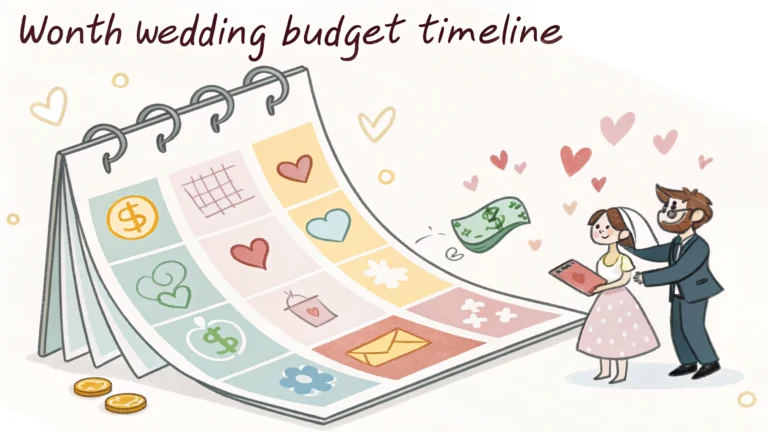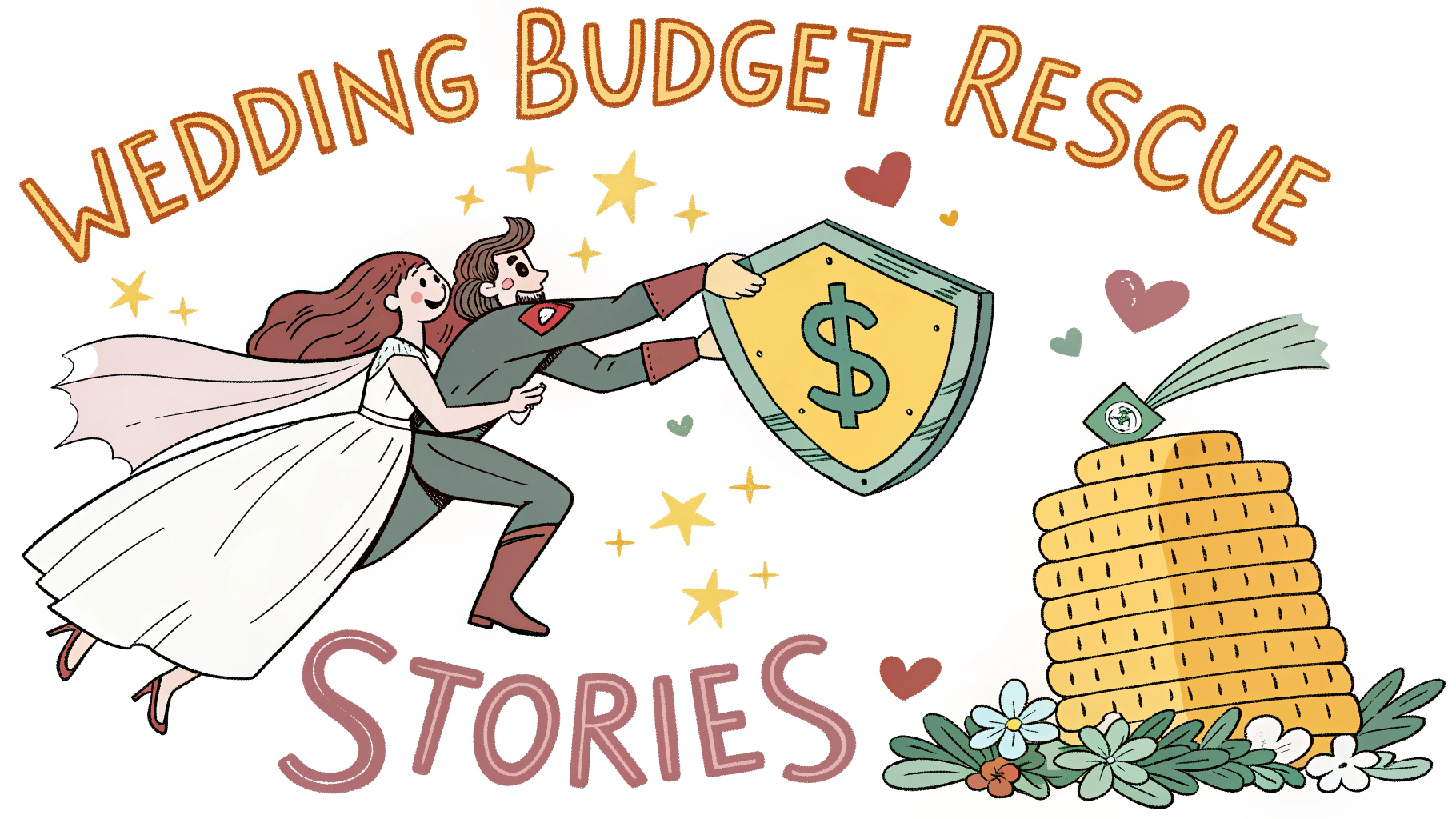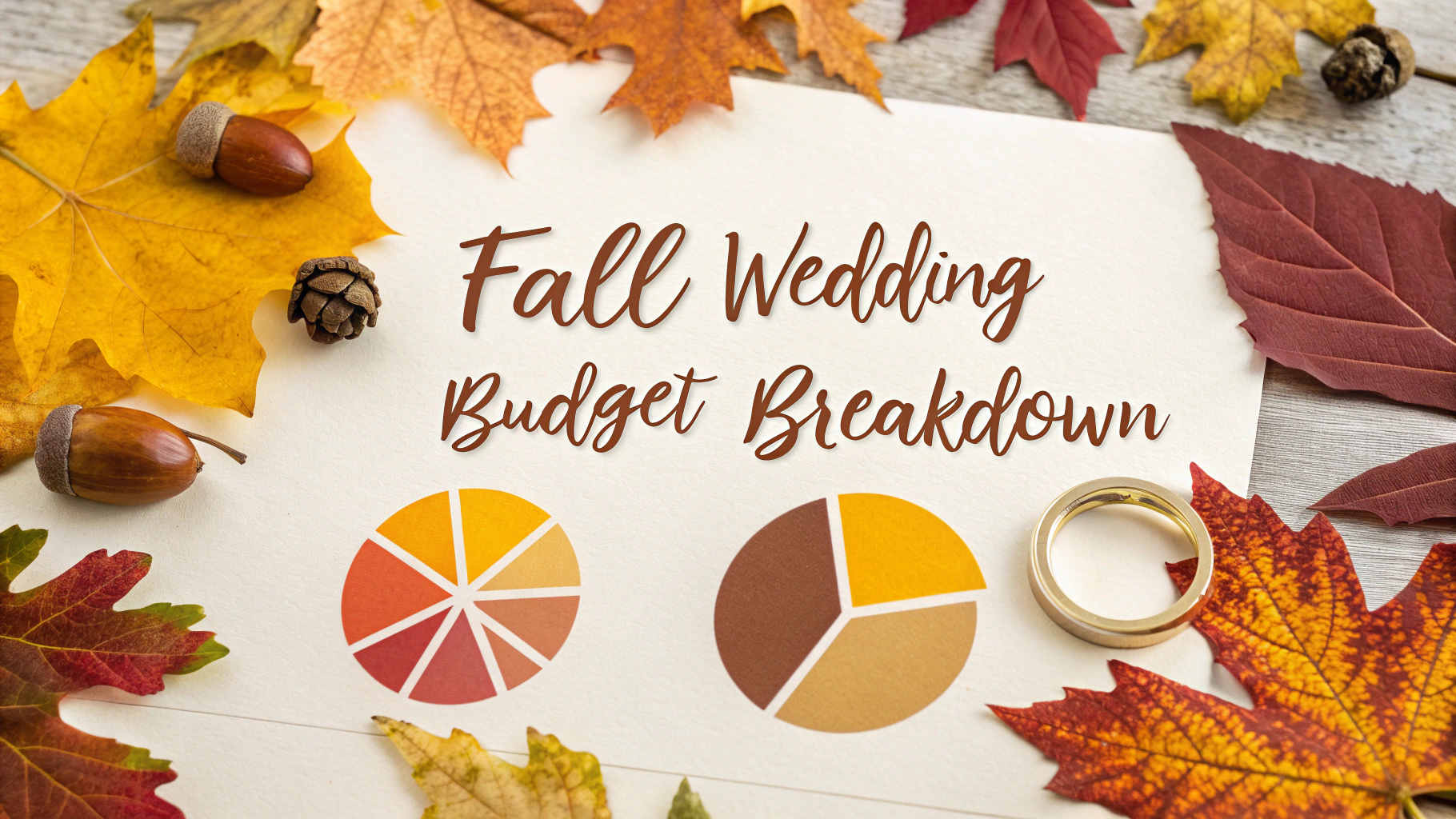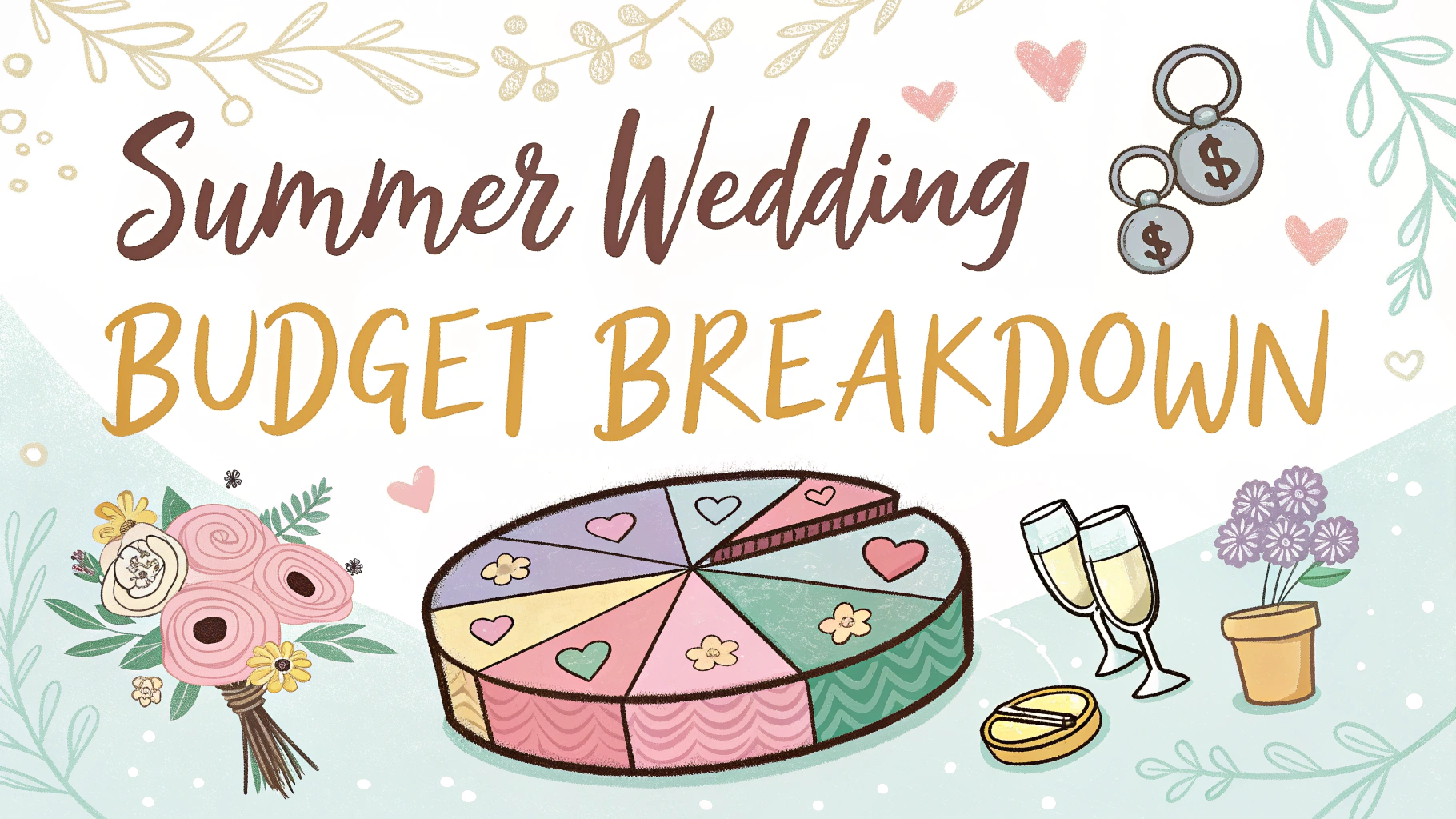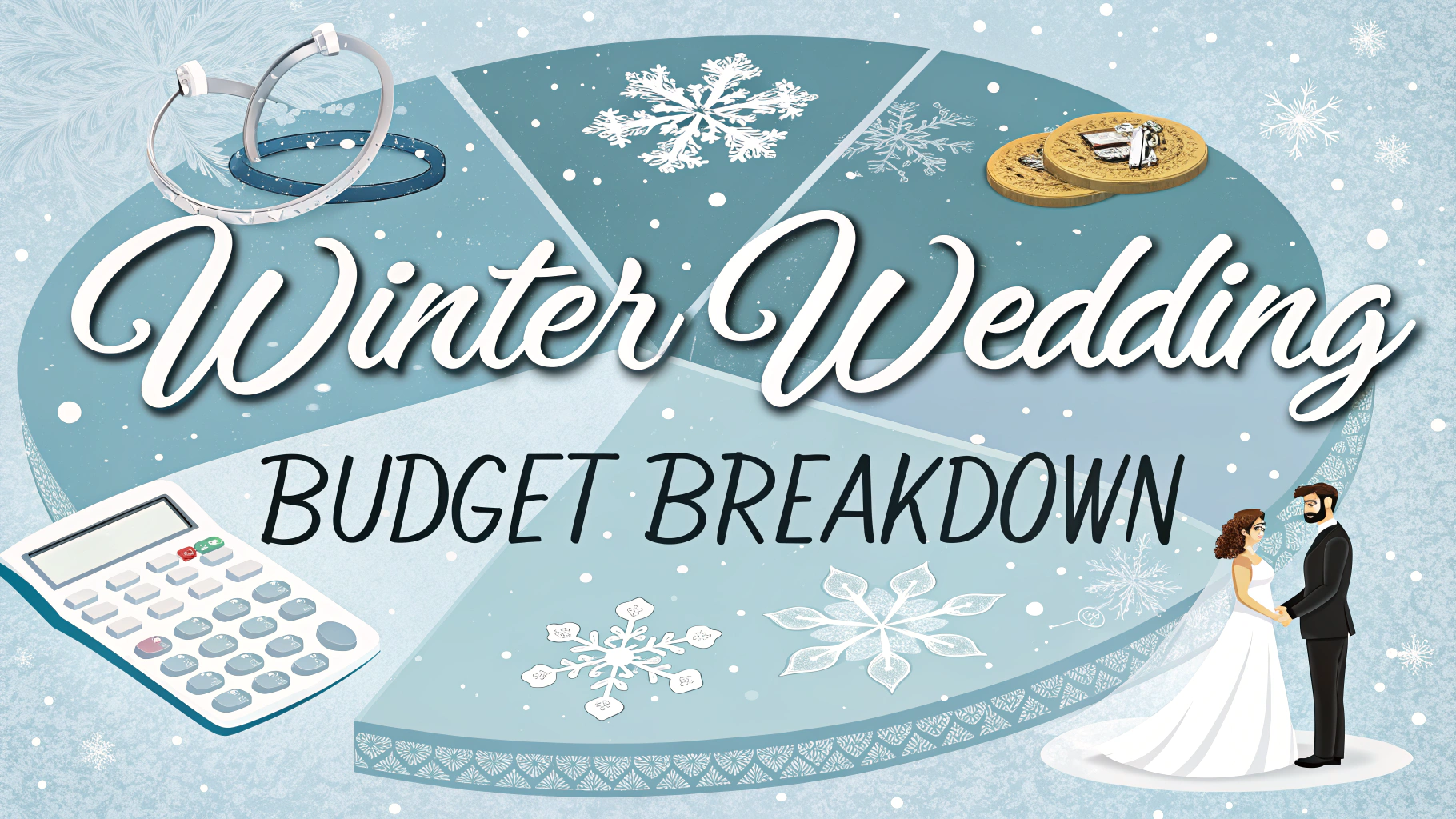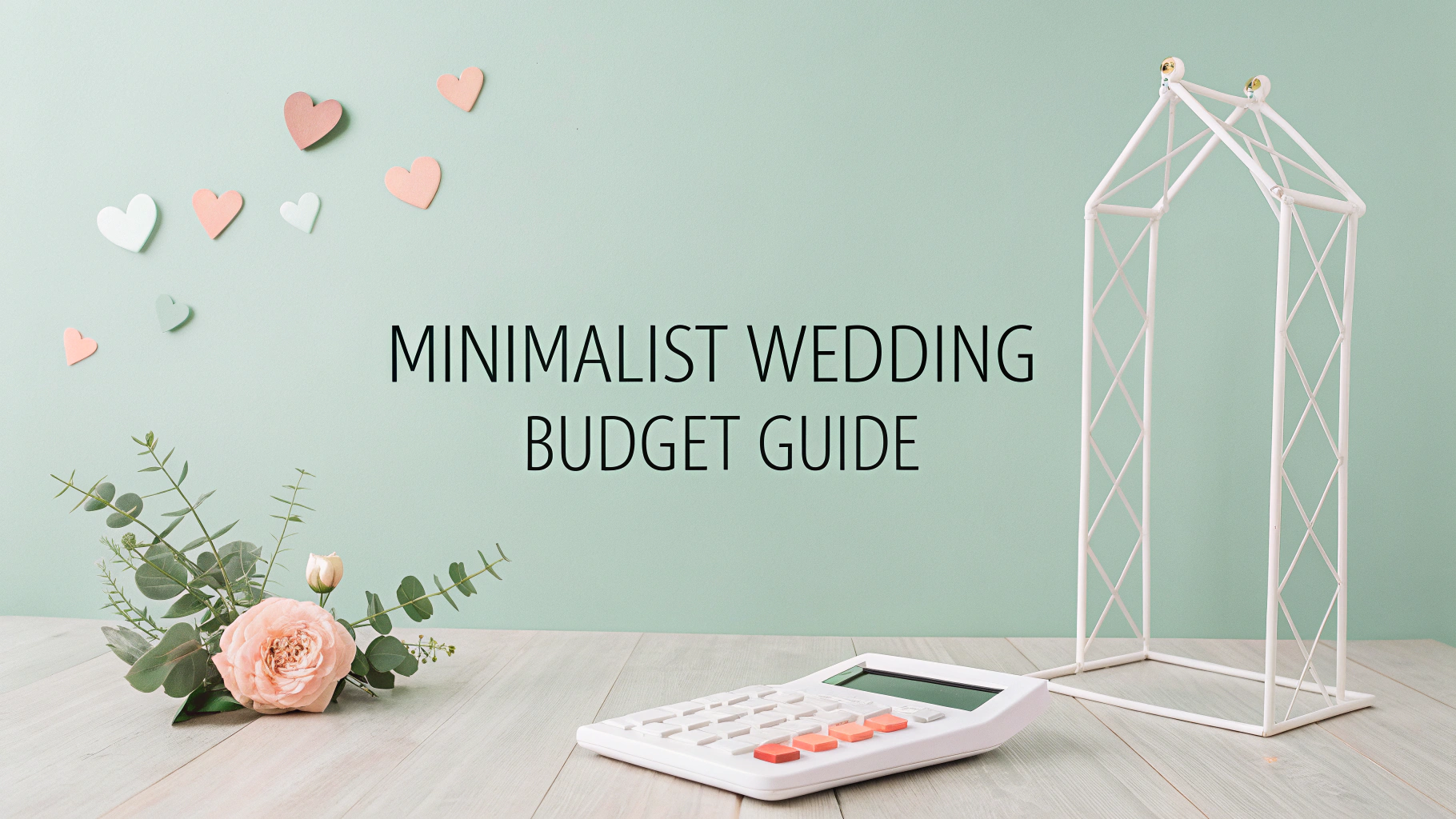Planning a wedding takes careful financial management, and this 18-month timeline helps you stay on track with your budget from engagement to the big day.
18-19 Months Before
- Set your total wedding budget with input from all contributing parties
- Create a spreadsheet to track expenses and payments
- Research average costs in your area for venues, catering, and key vendors
- Determine guest count to guide budget allocation
16-17 Months Before
- Book and pay deposits for:
- Venue (typically 25-50% deposit)
- Wedding planner if using one
- Photographer (usually 30% deposit)
12-15 Months Before
- Reserve and pay deposits for:
- Catering service
- Band or DJ
- Florist
- Start shopping for wedding attire (allocate 10-15% of total budget)
8-11 Months Before
- Order invitations and save-the-dates
- Book transportation services
- Reserve hotel room blocks
- Start planning honeymoon budget
6-7 Months Before
- Order wedding cake
- Purchase wedding rings
- Book hair and makeup artists
- Order wedding favors
3-5 Months Before
- Pay remaining balances for:
- Venue
- Catering
- Entertainment
- Purchase wedding party gifts
1-2 Months Before
- Confirm final payments with all vendors
- Create timeline for vendor payments due on wedding day
- Prepare tips for service providers
Budget Breakdown Guidelines
| Category | Percentage of Total Budget |
|---|---|
| Venue and Catering | 40-50% |
| Photography/Videography | 10-12% |
| Attire and Accessories | 8-10% |
| Flowers and Decorations | 8-10% |
| Entertainment | 5-10% |
| Invitations/Stationery | 2-3% |
| Wedding Rings | 2-3% |
| Transportation | 2-3% |
| Wedding Cake | 2-3% |
| Favors and Gifts | 2-3% |
Money-Saving Tips
- Consider a Friday or Sunday wedding for venue discounts
- Book vendors during off-peak season (November-April)
- Choose seasonal flowers to reduce floral costs
- Limit the bar menu to beer and wine
- Send digital save-the-dates
- Trim guest list to control per-head costs
Keep a buffer of 5% of your total budget for unexpected expenses that may arise during planning.
Managing Deposits and Payments
- Keep separate accounts for wedding funds
- Set up automatic savings transfers
- Read all vendor contracts carefully
- Get payment schedules in writing
- Keep receipts and confirmation numbers
Hidden Costs to Consider
- Alterations for wedding attire
- Marriage license fees
- Vendor meals
- Overtime charges
- Insurance for rings and events
- Service charges and gratuities
Emergency Fund Planning
- Set aside 5-10% for unexpected costs
- Common emergency expenses:
- Weather backup plans
- Last-minute rentals
- Additional decor needs
- Guest fluctuations
Post-Wedding Financial Tips
- Plan for thank-you card postage
- Budget for dress preservation
- Consider selling unused items
- Save receipts for insurance claims
Conclusion
Successful wedding budget management requires careful planning, detailed tracking, and regular monitoring of expenses. Start early, maintain accurate records, and keep open communication with vendors and contributing parties. Remember to prioritize spending on elements most important to you while maintaining flexibility for unexpected costs. With proper financial planning, you can create your dream wedding while staying within your budget.
FAQs
1. When should I start planning my wedding budget for an 18-month timeline?
You should begin planning your wedding budget immediately after getting engaged. The 18-month timeline allows you to space out payments, secure early-bird discounts, and have more venue and vendor options available.
2. What percentage of my total budget should be allocated to the venue and catering?
The venue and catering typically consume 40-50% of your total wedding budget. This includes the reception venue, food, beverages, and service staff.
3. How do I account for inflation and price increases over an 18-month planning period?
Add a 5-10% buffer to your total budget to account for inflation, unexpected costs, and vendor price increases that may occur during the 18-month planning period.
4. When should deposits be paid throughout the 18-month timeline?
Major deposits are typically due upon signing contracts: venue (12-18 months out), photographer (12 months), caterer (10-12 months), and other vendors (6-12 months). Final payments are usually due 1-2 weeks before the wedding.
5. How should I track my wedding expenses over the 18-month period?
Use a detailed spreadsheet or wedding planning app to track deposits, payment due dates, actual costs versus estimated costs, and remaining balance for each vendor and category.
6. What wedding elements require early booking and immediate budget allocation?
Venue, wedding planner (if using one), photographer, and caterer should be prioritized in the first 3-6 months of planning, requiring immediate budget allocation of approximately 60-70% of total funds.
7. How much should I set aside for my wedding dress and alterations in the timeline?
Allocate 8-10% of your total budget for the wedding dress, alterations, and accessories. Order the dress 9-12 months before the wedding to allow time for manufacturing and multiple fittings.
8. What’s the recommended payment schedule for vendors over 18 months?
Most vendors require a 25-50% deposit upon booking, with the balance due either in installments or 2-4 weeks before the wedding. Space out major payments every 3-4 months to manage cash flow.
9. Should I open a separate banking account for wedding expenses?
Yes, opening a dedicated wedding savings account helps track spending, manage contributions from family members, and ensure funds are available for scheduled vendor payments throughout the 18-month period.
10. What percentage of the budget should be reserved for last-minute expenses?
Keep 5-7% of your total budget in reserve for last-minute expenses, which typically arise in the final 2-3 months before the wedding, such as additional decor items, guest fluctuations, or weather contingencies.
